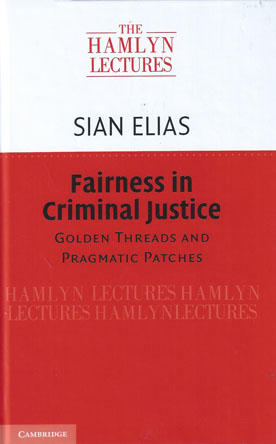
British criminal justice is a principal legacy of Empire in the common law world. It attempts fairness between prosecutors and accused in an accusatory system for establishing criminal responsibility supervised by a judge who is conspicuously detached from the fray.
Fundamental features, today recognised as human rights, include the presumption of innocence and onus of proof, the privilege against self-incrimination, and the right to legal advice and representation. In these lectures, Dame Sian Elias examines modern challenges to this conception of criminal justice prompted by anxiety about crime and the costs and delays in proof of guilt.
They include enlarged prosecutorial discretion in charging, incentivisation of early guilty pleas, adoption of reverse onuses of proof, application to criminal proceedings of principles of modern civil case management, and measures to bring the victim into the criminal justice system. The lectures question whether this repositioning risks the integrity of the system.